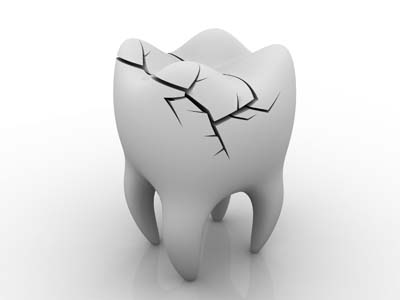6 Possible Reasons for Your Tooth Pain

As tooth pain rears its ugly head, you start to dread the impending dental appointment. Our bodies use pain to warn us that we may need medical attention, which is why we automatically associate toothaches with the dentist’s chair. Often, tooth pain leads to a dental procedure, but sometimes it is a symptom of an unrelated medical condition. To give you a better idea of what your tooth is trying to say to you, let us go through the reasons that your tooth might hurt.
Common reasons for tooth pain
1. Dental cavities and tooth decay
Dental cavities are one the most common dental problems that dentists treat. When a dental cavity is small, it makes a tooth sensitive to temperature, sugar and acid. In most cases, discomfort is only felt when the person eats or drinks.
As the cavity progresses to all-out tooth decay, the pain becomes more pronounced and persistent. The tooth may start to wake its owner in the dead of night with throbbing aches. This is the tooth’s way of calling for help.
2. Dental abscesses
The constant, throbbing pain of a dental abscess occurs when harmful mouth bacteria infect the inner tooth. As the infection progresses, the pulp becomes inflamed and pus accumulates inside the tooth. Increased pressure in the tooth forces the infection to try and push its way out through the outer tooth. The pressure combined with the infected nerves is what causes an abscess to hurt so much.
3. Teeth grinding
Also known as bruxism, teeth grinding is a condition where a person clenches their jaws and grinds their teeth. Most of the time, a person who suffers from bruxism does not realize that they are grinding their teeth or clenching their jaws. Teeth grinding causes tooth sensitivity, jaw pain and aching facial muscles. Treatment of this condition may require stress reduction, a mouth guard or the correction of a malocclusion.
4. An impacted tooth
A tooth becomes impacted when it is stopped from erupting as it should by adjacent teeth or the jawbone. In most cases, it is the wisdom teeth that have problems erupting as they should. The pain from an impacted tooth is dull and throbbing, and it causes the jaw and the surrounding teeth to ache as well. It happens when the tooth tries to push past the jaw and gum without any success.
This causes pressure and soreness of the gum and jaw. As the tooth tries to erupt, the gum surrounding the tooth may also become inflamed and swollen. It is worth noting that a person can feel teething pain even when a healthy wisdom tooth erupts. The difference is that the pain goes away once the tooth grows.
5. Sinus infection
Some of the upper teeth sit directly under the sinus cavities. So when the sinuses become inflamed, pain radiates from the sinuses to the teeth that are closest to them. The dull ache and pressure affect several of the upper teeth and the portion of the jaw that holds them.
6. Injury
The teeth can undergo trauma when a person has an accident or some other type of injury. A tooth can also become damaged if a person bites down on something hard. The result of the trauma can be a broken or cracked tooth that hurts on contact with cold air, hot or cold foods and drinks or pressure from grinding and chewing. The pain is usually quite sharp.
See a dentist and find out why your tooth hurts
When your tooth starts to hurt, your first thought is probably ‘cavity’, but that is not always the case. Whatever the cause, do not learn to live with tooth pain when a dentist can bring relief.
Request an appointment here: https://familychoicedentistry.com or call Family Choice Dental at (505) 634-5657 for an appointment in our Albuquerque office.
Check out what others are saying about our services on Yelp: Read our Yelp reviews.
Related Posts
If you are thinking about wisdom teeth extraction, now might be the right time for this procedure. These third molars can create problems in the mouth, both cosmetically and for your health. It is often more sensible to take out the teeth before they ever emerge. Doing so can help you avoid many of the…
Wisdom teeth are notorious for not coming in well and leaving your mouth feeling crowded. There are other health concerns and cosmetic issues that can arise when these teeth are impacted. It should not be a surprise why dentists frequently recommend that these teeth come out, often before they erupt. If you decide not to…
Unlike other teeth, wisdom teeth do not show up until you are around age 20. Some people get them as early as age 17, while other people may not see them erupt until age 25. In either case, these third molars can cause troubling issues cosmetically and for your oral health. Your dentist will examine…
Dental crowns play a central role in modern restorative dentistry, offering durable protection for damaged teeth while restoring natural function. Anyone preparing for this treatment benefits from understanding the steps involved in the dental crown process and the advantages it provides.The dental crown process begins with an examination performed by a dental professional. During this…
